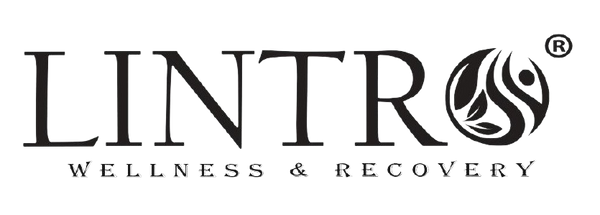Did you know that being physically active can do wonders for your mental health? It's true! Exercise is an effective complementary treatment for various mental health conditions, including depression, anxiety, and stress. While exercise shouldn't be seen as a replacement for traditional mental health treatments, it can be a wonderful way to boost your mood and overall wellbeing.
Focusing on your fitness and putting your wellness first doesn't have to be intense or expensive - even moderate physical activity can make a difference. Making your wellbeing a priority is the first step towards a healthy mind and body, so why not give it a try?
How Does Fitness Help With Mental Health?
Exercise releases endorphins, which are mood-boosting chemicals. Endorphins work with the brain's receptors and can produce feelings of happiness and euphoria. When we exercise, these feel-good chemicals are released, improving our feelings, which can lead to a more positive outlook on life.
Regular exercise is also a brilliant habit to form for long-term physical and mental health. It can help to lessen the impact of certain mental health issues and can also increase your wellness and resilience to future challenges.
How Fitness Can Help With Stress
In addition, exercise can also work to reduce levels of the stress hormone cortisol. When we're stressed, our bodies release adrenaline and cortisol as a way to cope with the situation. However, too many of these stress hormones can adversely affect our mental and physical wellbeing, including weight gain, cardiovascular issues and mental health disorders.
Exercise can help to lower cortisol levels, which in turn can reduce stress and improve our overall wellbeing. Not only this, but getting moving can be a brilliant distraction technique. When we're feeling stressed, our minds can dwell on negative thoughts and feelings. Exercise can help to take our focus away from these things and give us a much-needed break.
Exercise and Anxiety
Exercise can be a great way to cope if you're struggling with anxiety. Not only can it help to reduce anxiety symptoms, but it can also give you a sense of empowerment. When we're anxious, we often feel like we're not in control of our thoughts and feelings. Exercise can help us to take back control and feel more confident.
Focusing on the fitness activity is essential, rather than letting your mind wander. By doing this, averting our focus onto something else can help to break the cycle of negative thoughts that fuel anxiety. Trying this can be difficult at first, but it will become easier with practice.
Physical Activity and Depression
Depression is a common mental health issue that can significantly impact our lives. It can cause feelings of hopelessness, worthlessness, and sadness, which can make it hard to motivate ourselves to do anything.
However, exercise is an effective treatment for mild or moderate depression. It can help to improve mood, increase energy levels, and promote feelings of relaxation and wellbeing. When we exercise, we are not just working on our physical fitness levels but also our brain.
There is still much to learn about how exactly exercise works out the brain, but we know that it has several benefits. Exercise can help to increase the size of the hippocampus, which is the part of the brain responsible for memory and learning. It can also help to shield the brain from age-related declines in cognitive function.
As for mental health and depression specifically, exercise has been shown to increase serotonin levels in the brain. Serotonin is a neurotransmitter that directly affects our mood and can help to improve feelings of happiness and wellbeing, thus reducing the sometimes crippling side effects of mental health.
In short, fitness can have a profound impact on our mental health! It's more than just moving our bodies; it's also about giving our brains the attention and care they need.
Exercise and Sleep Quality
Exercise is also key to improving sleep quality, which is crucial for positive mental health. A good night's sleep helps refresh and repair the body and can heighten your mood and cognitive function. If you struggle with poor sleep quality, moderate exercise may help to improve things.
When we incorporate fitness into our routine, our body temperature increases, this temperature rise can help us feel more tired at night and improve sleep quality. Although, it's important not to exercise too close to when you wish to sleep, as the adrenaline release can have the opposite effect!
How Else Can Fitness Help With Mental Health?
While the benefits of exercise on mental health are vast, there are other ways in which fitness can help:
Socialisation: when we socialise during a workout, it can help to improve our mood and reduce feelings of loneliness or isolation. Joining a sports team or fitness class can be a great way to meet new people and feel part of a community.
Confidence: as we become more physically fit, we often start to feel better about ourselves, and our self-esteem can get a boost. Having a sense of heightened confidence can also positively impact other areas of our lives, such as work or relationships.
Energy: when we live a sedentary lifestyle, we can often feel sluggish and low on energy. Exercise can help to increase our energy levels, both in the short and the long term.
Final Thoughts on How Fitness Helps With Mental Health
Fitness isn't just about having a toned body or being able to run a marathon. It's also about caring for our minds and giving us a sense of wellness. Exercise has been shown time and time again to be an effective complementary treatment for mental health conditions such as anxiety and depression. It can also help to improve sleep quality, wellbeing, increase energy levels, and boost confidence.
Please note: if you feel like your mental health or wellbeing is suffering at any time, it's important to reach out for help. Talk to your GP about what treatments and support options are available to you.

